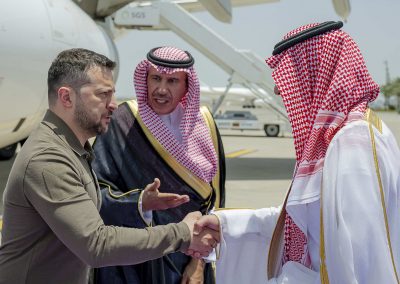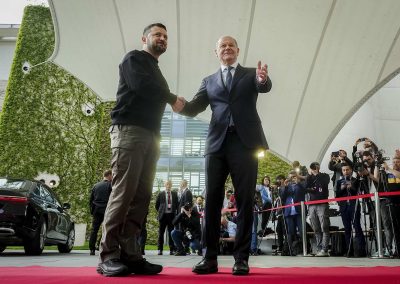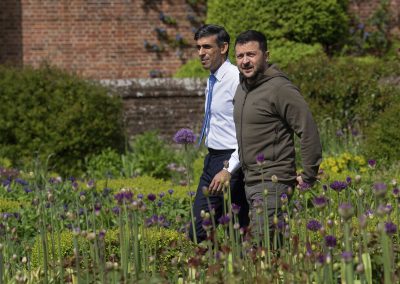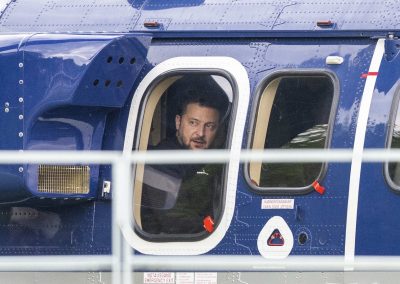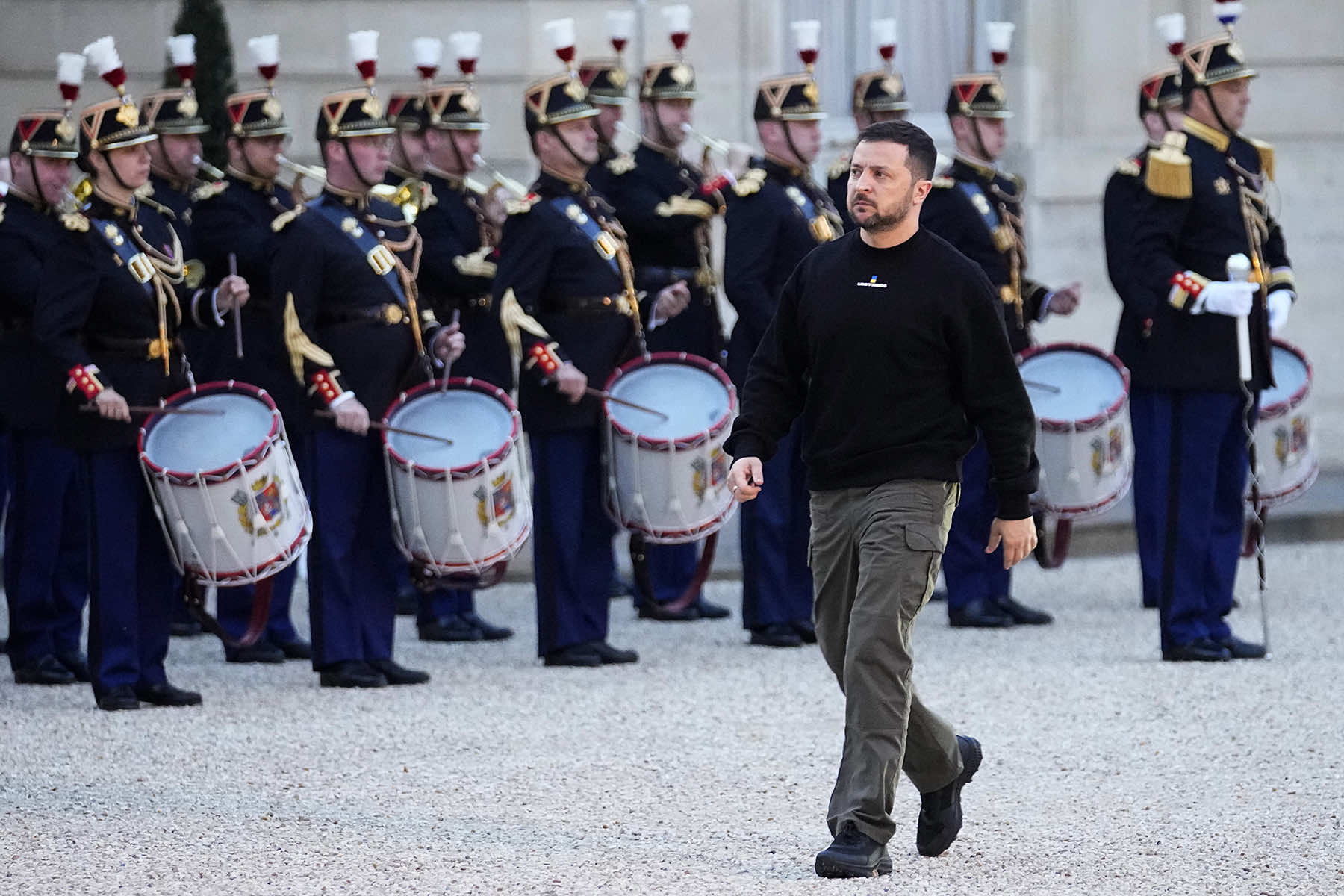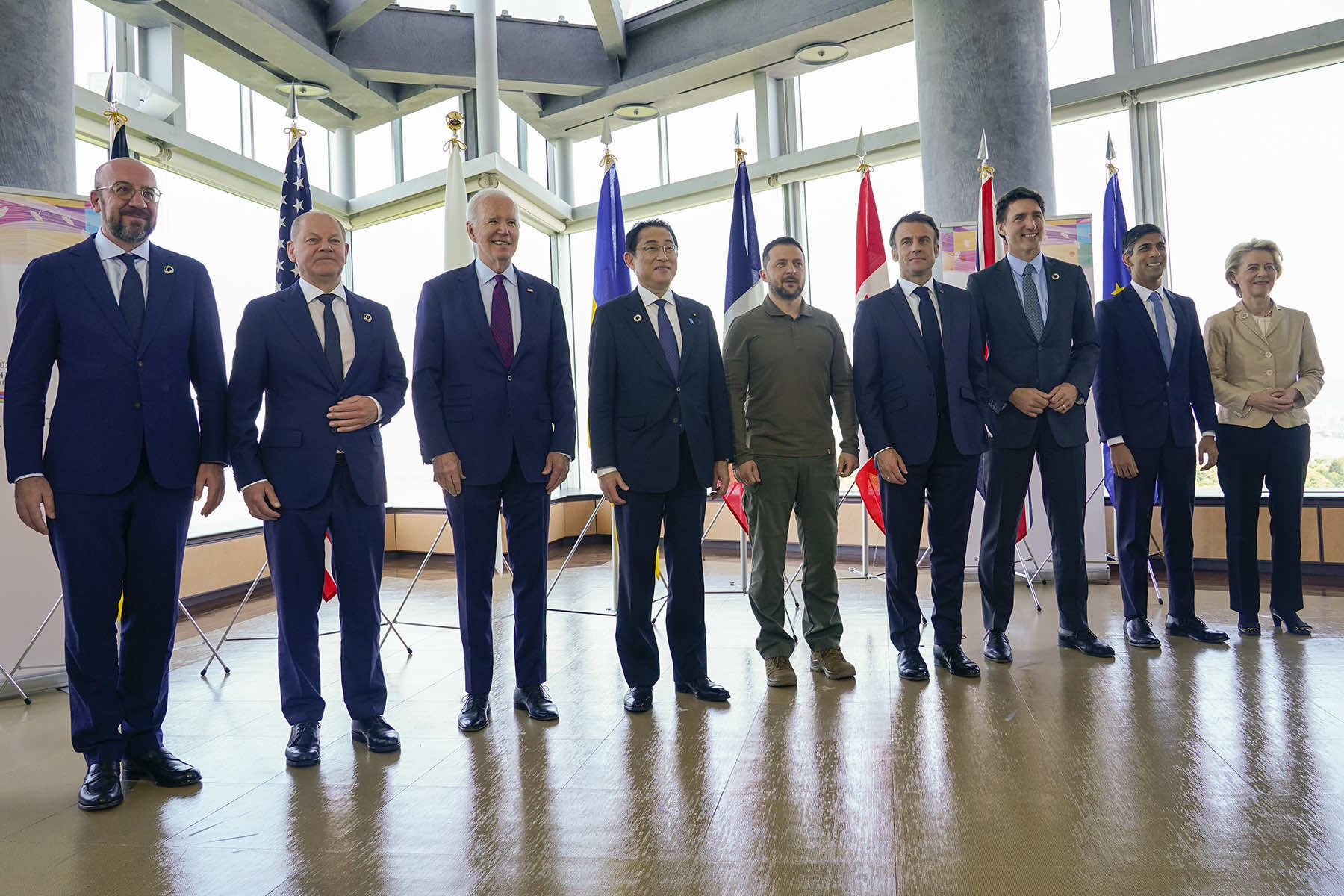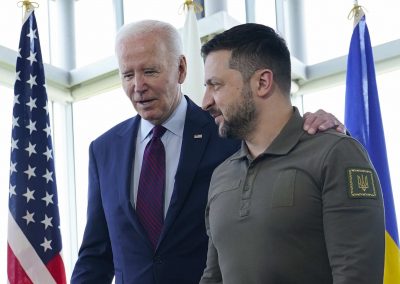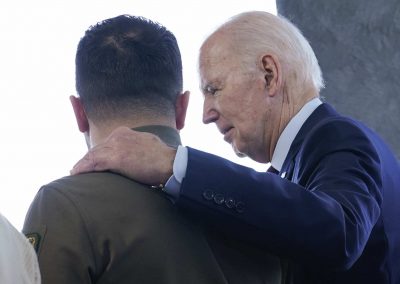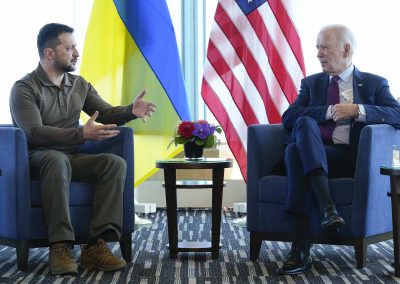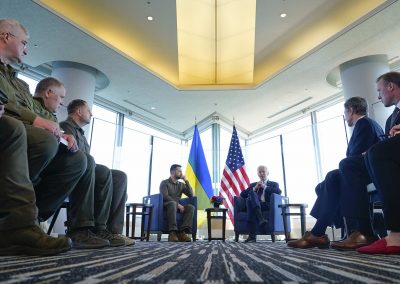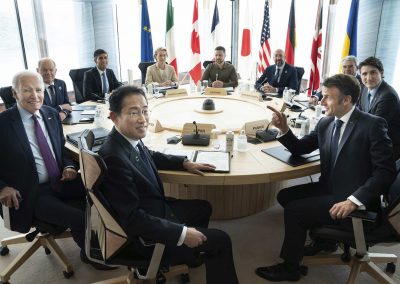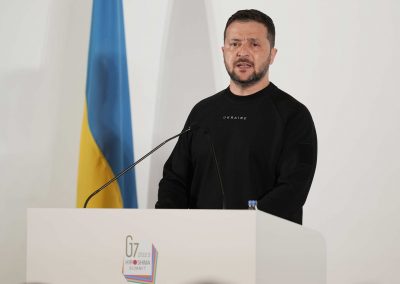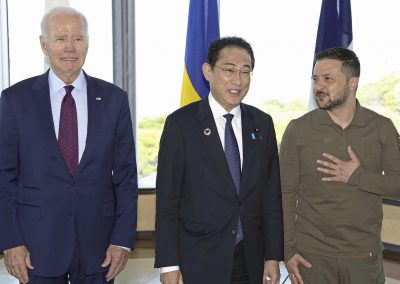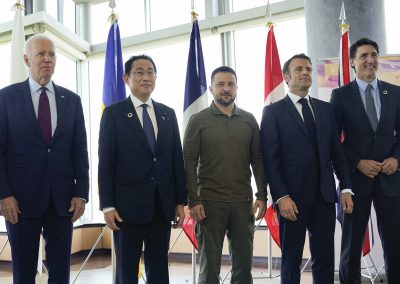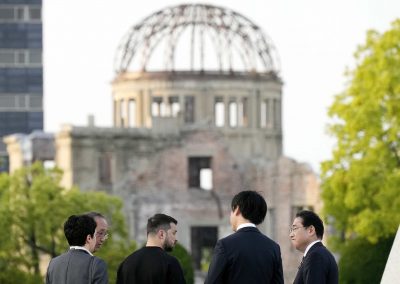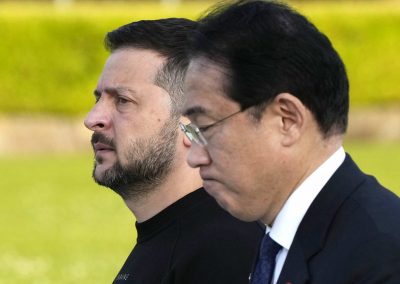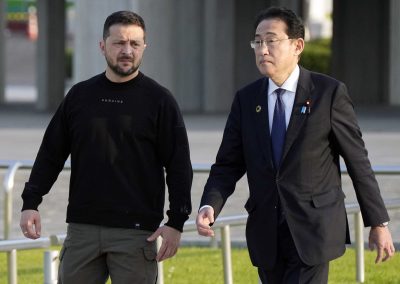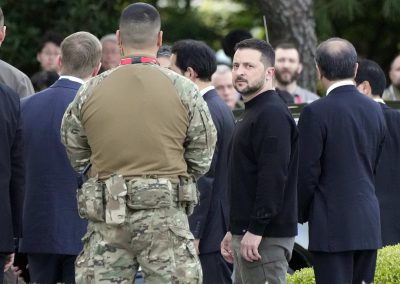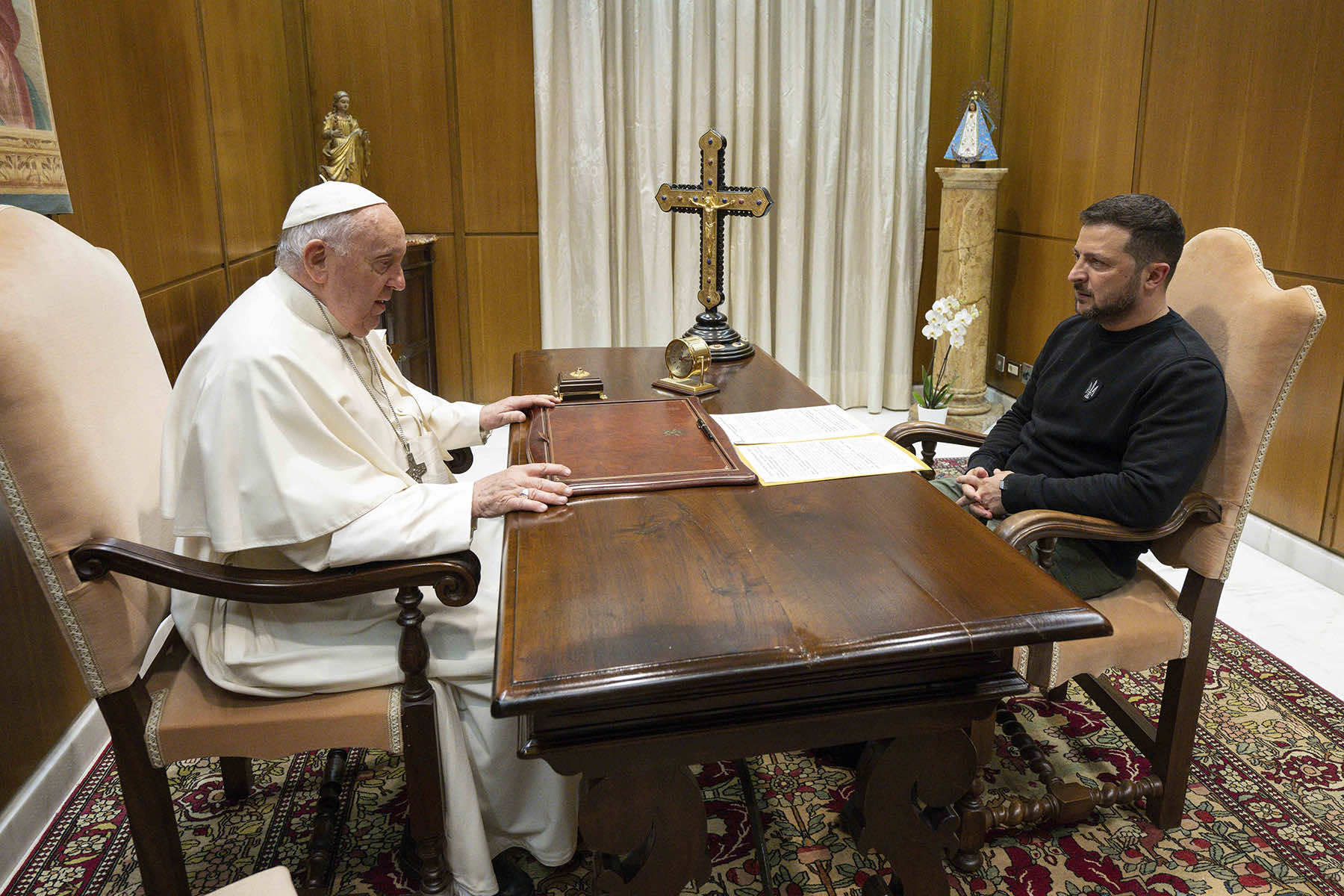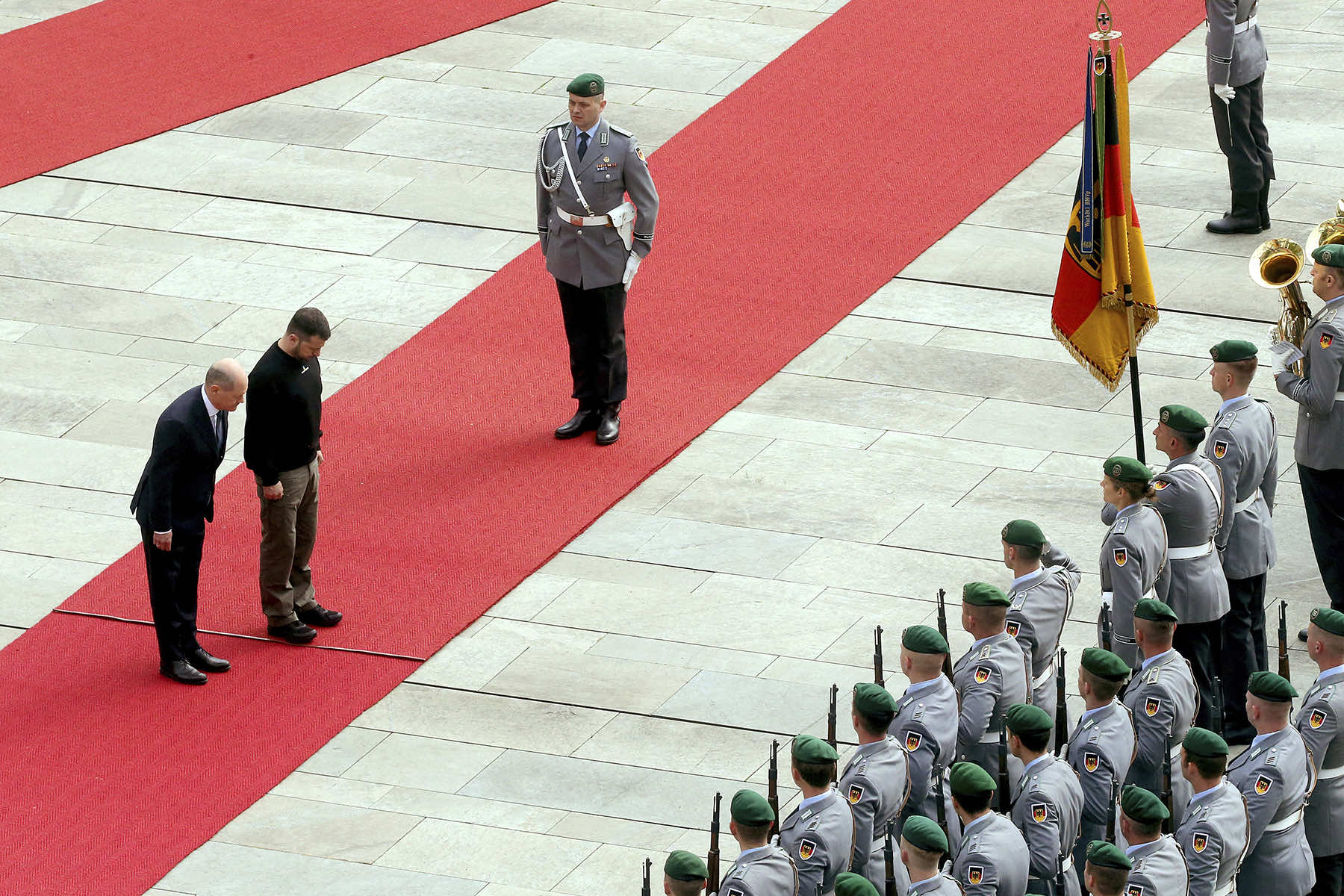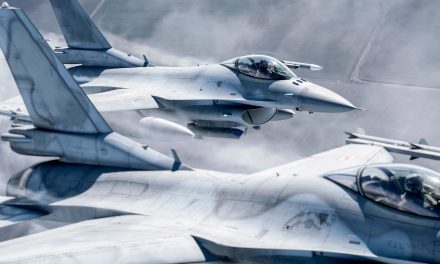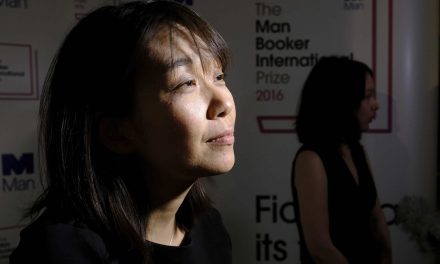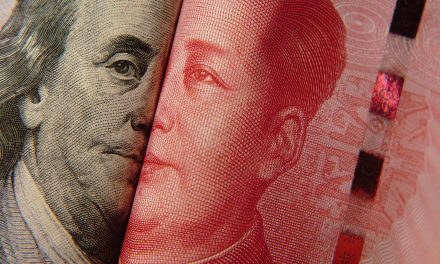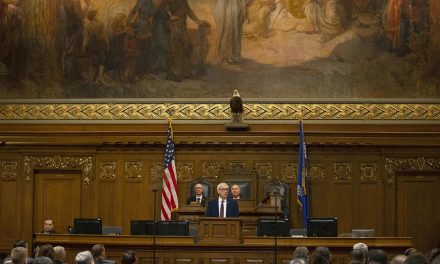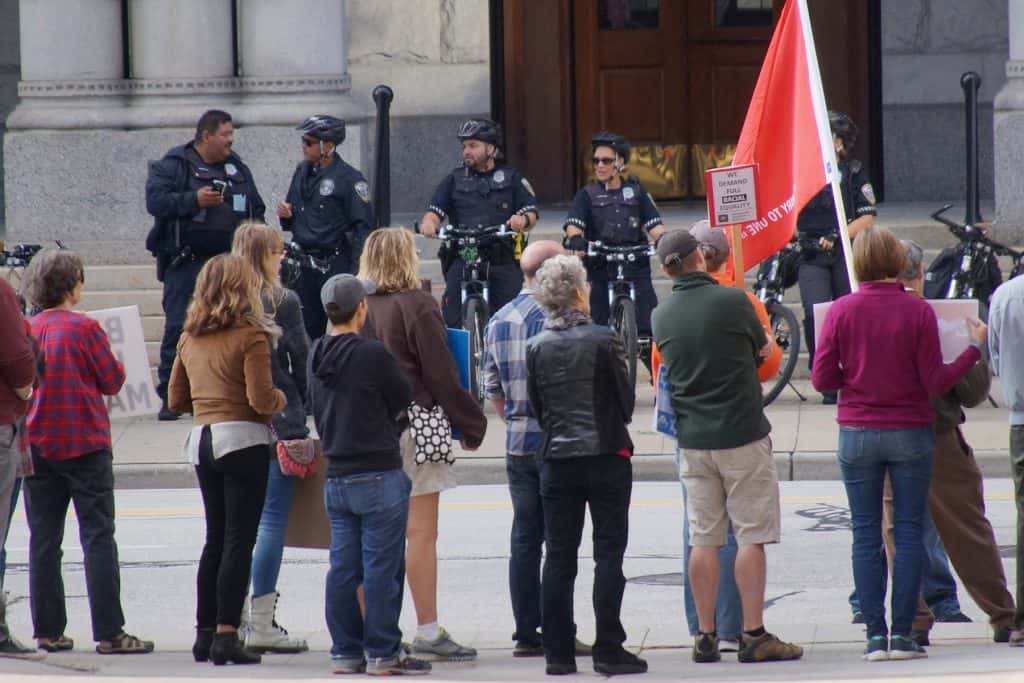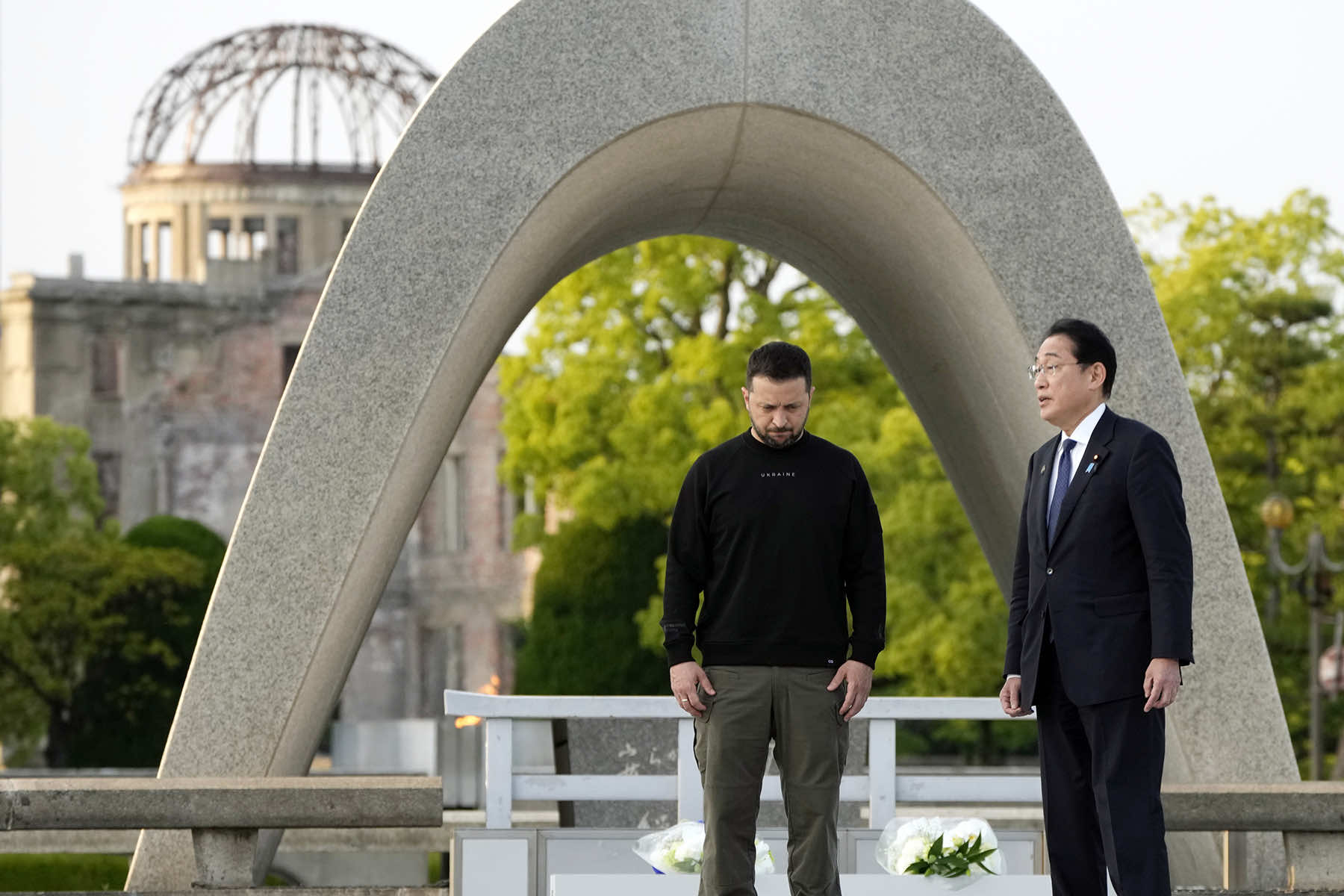
While the world awaits Ukraine’s spring battlefield offensive, its leader, Volodymyr Zelenskyy, has launched a diplomatic one. In the span of a week, he has dashed to Italy, the Vatican, Germany, France, Britain, and Japan to shore up support for defending his country.
On May 19, he was in Saudi Arabia to meet with Arab leaders, some of whom are allies with Moscow. President Vladimir Putin, meanwhile, was in the southern Russian city of Pyatigorsk, chairing a meeting with local officials, sitting at a large table at a distance from the other attendees.
The Russian president has faced unprecedented international isolation, with an International Criminal Court arrest warrant hanging over his head and clouding the prospects of traveling to many destinations, including those viewed as Moscow’s allies.
With his invasion of Ukraine, “Putin took a gamble and lost really, really big time,” said Theresa Fallon, director of the Brussels-based Centre for Russia Europe Asia Studies. “He is an international pariah, really.”
It was only 10 years ago when Putin stood proudly among his peers at the time – Barack Obama, Angela Merkel and Shinzo Abe – at a Group of Eight summit in Northern Ireland. Russia has since been kicked out of the group, which consists of Canada, France, Germany, Italy, Japan, Britain and the United States, for illegally annexing Crimea in 2014.
Now it was Ukraine’s turn in the spotlight.
President Zelenskyy arrived in Japan under tight security on May 20 for talks with the leaders of the world’s most powerful democracies.
The Ukrainian leader’s in-person appearance in his trademark olive drab underscored the centrality of the war for the G7 bloc of rich democracies. The personal appearance was meant to galvanize global attention, and his participation represented a great symbolic and geopolitical significance.
It also stole much of the limelight from other priorities, including security challenges in Asia and outreach to the developing world, that the leaders focused on at the three-day gathering.
Bolstering international support is a key priority as Ukraine prepares for what is seen as a major push to take back territory seized by Russia in the war that began in February last year. Zelenskyy’s in-person visit to the G7 summit came just hours after the United States agreed to allow training on potent American-made fighter jets, laying the groundwork for their eventual transfer to Ukraine.
“It is necessary to improve (Ukraine’s) air defense capabilities, including the training of our pilots,” Zelenskyy wrote on his official Telegram channel after meeting Italian Premier Giorgia Meloni, one of a number of leaders he talked to.
The green light on F-16 training is the latest shift by the Biden administration as it moves to arm Ukraine with more advanced and lethal weaponry, following earlier decisions to send rocket launcher systems and Abrams tanks. The United States has insisted that it is sending weapons to Ukraine to defend itself and has discouraged attacks by Ukraine into Russian territory.
The G7 leaders have rolled out a new wave of global sanctions on Moscow as well as plans to enhance the effectiveness of existing financial penalties meant to constrain President Vladimir Putin’s war effort. Russia is now the most-sanctioned country in the world, but there are questions about the effectiveness.
“Russia’s brutal war of aggression represents a threat to the whole world in breach of fundamental norms, rules, and principles of the international community. We reaffirm our unwavering support for Ukraine for as long as it takes to bring a comprehensive, just and lasting peace,” the G7 group later said in a statement.
President Zelenskyy’s inclusion also came at a time when the optics are just not in the Kremlin’s favor.
“It conveys the fact that the G7 continues to strongly support Ukraine,” said Nigel Gould-Davies, senior fellow for Russia and Eurasia at the International Institute for Strategic Studies. “It’s a visible marker of the continued commitment of the most highly industrialized and highly developed countries in the world.”
There is uncertainty over whether Putin can travel to Cape Town in August for a summit of the BRICS nations of Brazil, Russia, India, China and South Africa.
Moscow has long showcased the alliance as an alternative to the West’s global dominance, but this year it is already proving awkward for the Kremlin. South Africa, the host of the summit, is a signatory to the ICC and is obligated to comply with the arrest warrant on war crimes charges.
South Africa has not announced that Putin will definitely come to the summit but has been planning for his possible arrival. South African President Cyril Ramaphosa has appointed an inter-ministerial committee, led by Deputy President Paul Mashatile, to consider South Africa’s options with regard to its ICC commitment over Putin’s possible trip.
While it is highly unlikely the Russian president would be arrested there if he decides to go, the public debate about whether he can is in itself “an unwelcome development whose impact should not be underestimated,” according to Gould-Davies.
Then there are Moscow’s complicated relations with its own neighbors. In early May, Putin projected the image of solidarity, with leaders of Armenia, Belarus and Central Asian states standing beside him at a Victory Day military parade on Red Square.
Just recently, however, the leaders of Kazakhstan, Kyrgyzstan, Tajikistan, Turkmenistan and Uzbekistan flocked to China and met with leader Xi Jinping at a summit that highlighted the erosion of Russia’s influence in the region as Beijing seeks to make economic inroads into Central Asia.
Xi is using the opportunity “of a weakened Russia, a distracted Russia, almost a pariah-state Russia to increase (China’s) influence in the region,” Fallon said.
Putin’s effort this month to shore up more friends in the South Caucasus by scrapping visa requirements for Georgian nationals and lifting a four-year ban on direct flights to the country also did not appear to go as smoothly as the Kremlin may have hoped.
The first flight that landed on May 19 in Georgia was met with protests, and the country’s pro-Western president has decried the move as a provocation.
Zelenskyy’s ongoing world tour can be seen as a success on many levels.
Invitations from other world leaders is a sign they think Ukraine is “going to come out of the war in good shape,” said Phillips P. O’Brien, professor of strategic studies at the University of St. Andrews in Scotland.
Otherwise, “it simply wouldn’t be happening,” he said. “No one would want to be around a leader they think is going to be defeated and a country that’s going to collapse.”
By contrast, the ICC warrant might make it harder for leaders even to visit Putin in Moscow because “it’s not a good look to visit an indicted war criminal,” Gould-Davies said.
European leaders promised him an arsenal of missiles, tanks and drones, and even though no commitment has been made on fighter jets – something Kyiv has wanted for months – a conversation about finding ways to do it has begun.
His appearance on May 19 at the Arab League summit in Jeddah, a Saudi Arabian port on the Red Sea, highlighted Kyiv’s effort to spread its plight for support far and wide, including in some countries whose sympathies are with Russia.
In addition to Zelenskyy, Saudi Crown Prince Mohammed bin Salman also welcomed Syrian President Bashar Assad at the summit after a 12-year suspension – something analysts say aligns with Moscow’s interests.
Anna Borshchevskaya, a senior fellow at the Washington Institute who focuses on Russia’s policy in the Middle East, called it “another testament to the fact that Russia is not isolated globally for its invasion of Ukraine, that the Middle East is one part of the world where Russia is able to find avenues to avoid global isolation – both ideological isolation but also economic isolation.”
She added that Zelenskyy and his government deserve credit for “in recognizing that they need to reach out more to improve their diplomatic efforts in this part of the world and other parts of the world where the Russian narrative resonates.”
Kyiv could expect that “this is the beginning of a larger shift in perception that could eventually translate into potential support,” Borshchevskaya said.
Similarly, the Ukrainian president’s participation in the G7 summit is “a message to the rest of the world, to Russia and beyond, and the so-called Global South,” Gould-Davies believes.
There is a concern in the West over the extent to which some major developing economies – Brazil, South Africa and, to a degree, India – “are not criticizing, not condemning Russia and indeed in various ways are helping to mitigate the impact of sanctions on Russia,” he said.
“Collectively, economically, they matter. So there is, I think, this felt need for a renewed diplomatic campaign to bring some of these most important states into the kind of the Western way of looking at these things,” Gould-Davies said.
Dasha Litvinova and MI Staff
Associated Press
TALLINN, Estonia
Susan Walsh (AP), Eugene Hoshiko (AP), Louise Delmotte (AP), Stefan Rousseau (AP), Michel Euler (AP), Kay Nietfeld (AP), Wolfgang Kumm (AP), Christophe Gateau (AP), Carl Court (AP), Vatican News (via AP), Saudi Press Agency (via AP), Kyodo News (via AP)

